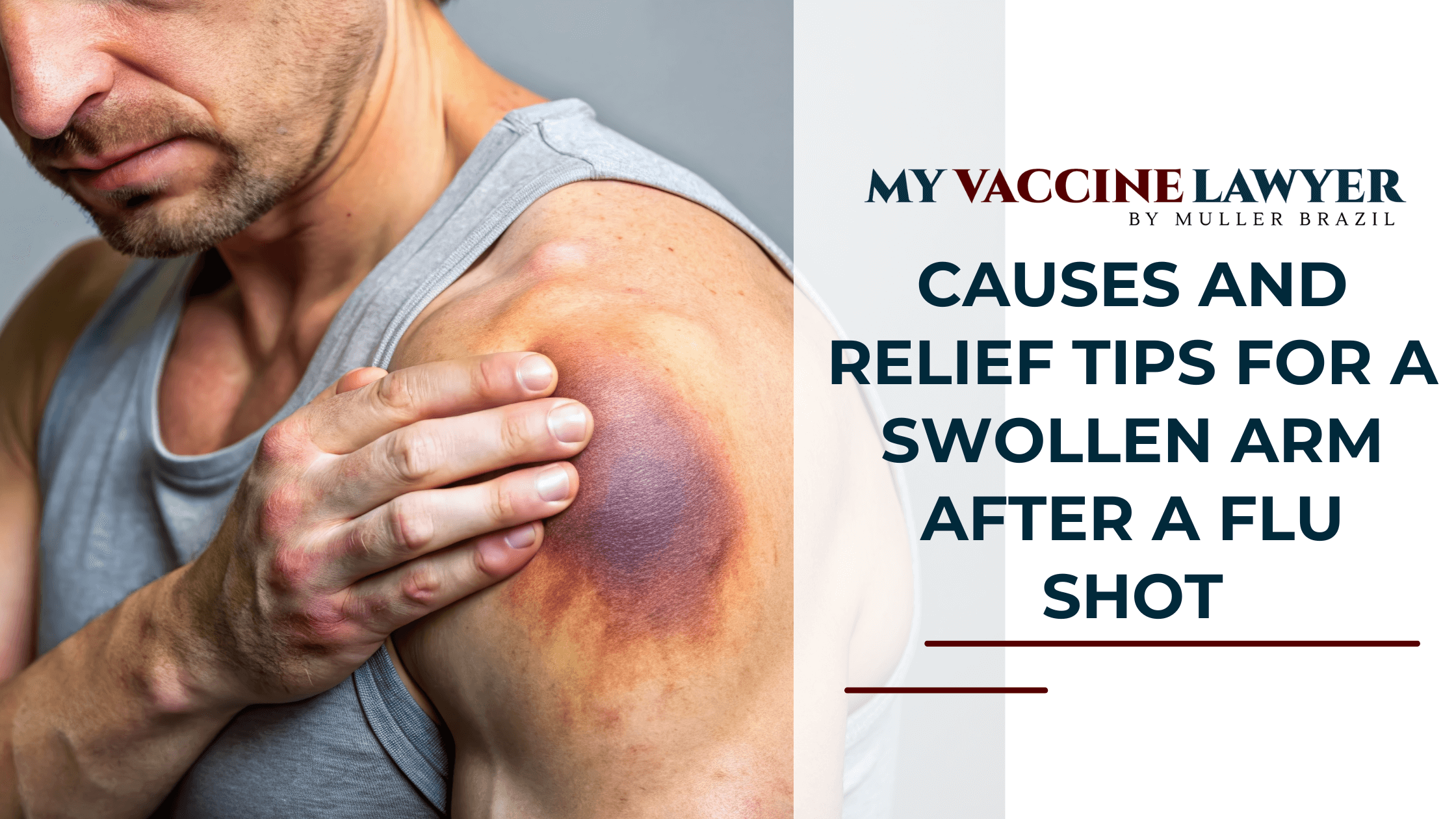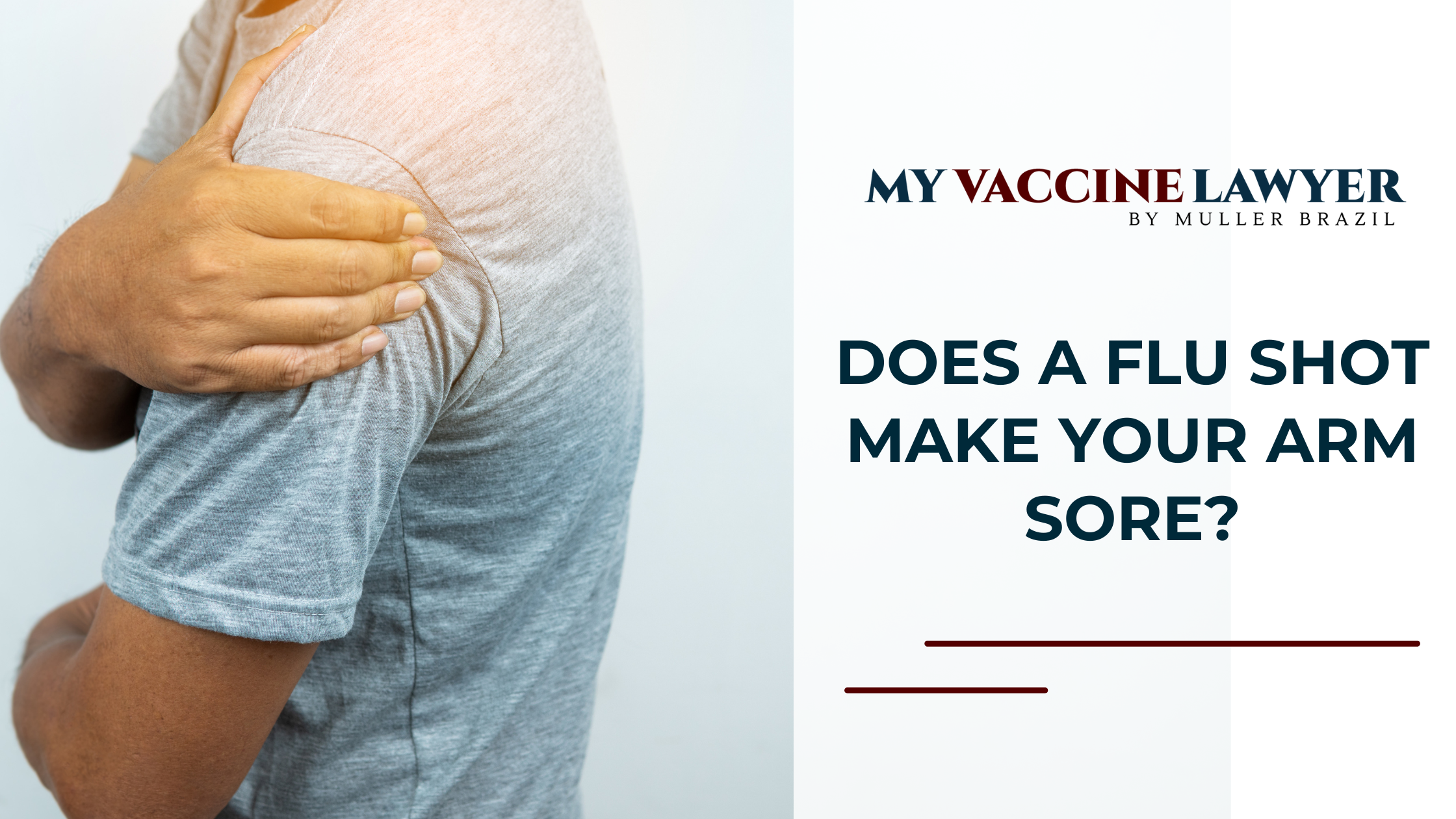Is the Flu Shot Intramuscular?
Yes, the flu shot is administered intramuscularly in most cases, typically in the deltoid muscle of the upper arm.
6 min read
Vaccine Injury Law Resources / Flu Shot / What to Avoid After a Flu Shot
 Max Muller
:
Sep 28, 2023 12:00:00 PM
Max Muller
:
Sep 28, 2023 12:00:00 PM
Most people walk out of the doctor’s office after getting a flu shot and never think about it again. But not everyone is that lucky. A stiff arm is one thing. Losing range of motion, struggling to lift your shoulder, or feeling nerve pain days later is another.
You’re here because something doesn’t feel right. You’re right to question it. Symptoms that go beyond typical flu shot side effects can signal an avoidable injury, one that may be covered under the National Vaccine Injury Compensation Program.
If you’ve already taken the shot, what you do next matters. Some actions make things worse. Some delays close the door to compensation. Let’s get specific.
Don’t hit the gym. Don’t run a 10K. Don’t start a heavy lifting session just because you feel fine. After a flu vaccination, your immune system starts producing the response that protects you. Strenuous exercise can interfere with that immune response and inflame the injection site, especially in the first 24–48 hours.
Moderate activity like walking or light movement is fine. But if your arm is sore or you're already feeling muscle aches, pushing harder increases the risk of long-term pain or shoulder injury.
Alcohol and immune cells don’t get along. Drinking after a flu shot can make it harder for your body to develop protection. It can also mask side effects like a low grade fever or feeling faint, that are early indicators of something more serious. If you’re already feeling tired, alcohol intensifies it.
Stick to water. Not forever. Just for the first day or two.
Over the counter pain relievers like ibuprofen or acetaminophen are commonly used to reduce fever or ease discomfort. But timing matters. Taking anti inflammatory medication too early, especially within a few hours of the shot, may interfere with the immune system’s ability to respond. That’s what the latest research suggests.
If your doctor tells you to take something, follow that. But if you're reaching for otc pain relievers without guidance, wait until at least the next day unless symptoms are already affecting your function.
Leave it alone. Rubbing or massaging the injection site can increase soreness and disrupt how the weakened viruses in the vaccine interact with your immune system.
If the area swells or turns red, monitor it. That’s common. But pushing on it, tapping it, or trying to "work it out" only makes it worse.
If you're feeling worse after 48 hours, not better, you’re not dealing with typical side effects. Signs like:
Difficulty breathing
Trouble lifting your arm,
Tingling down your neck or back
A fever that keeps climbing, are not normal reactions to the influenza vaccine.
These symptoms require immediate medical attention. And if they’re confirmed to be linked to the flu shot, they may qualify under the federal compensation program for vaccine-related injuries.
Flu shot side effects are expected. But some reactions signal something more serious—and the difference isn't always obvious at first. You need to know what’s common, what’s not, and what crosses the line into a vaccine injury that qualifies for legal action.
Most people experience mild symptoms that resolve in 1–3 days. These are signs that the body’s immune response is doing what it’s supposed to do.
The most common side effects after a flu vaccination include:
Arm soreness at the injection site
Low grade fever
Muscle aches
Feeling tired or faint
Mild swelling around the injection area
These symptoms typically stay localized, don’t interrupt your daily function, and don’t get worse with time.
There is a difference between common and compensable. Side effects that escalate, persist, or affect your mobility or nervous system need attention from both a doctor and a vaccine injury attorney.
Watch for:
Severe shoulder pain or limited arm movement beyond 72 hours
Numbness, tingling, or weakness in the neck, back, or legs
High fever that does not resolve
Difficulty breathing or chest tightness
Any neurological symptoms within days of the injection
These reactions can indicate conditions like SIRVA (Shoulder Injury Related to Vaccine Administration) or Guillain-Barré Syndrome, both of which are covered under the National Vaccine Injury Compensation Program.
They are more likely to occur in older adults or those considered high risk, but anyone can develop them, even if you’ve received the yearly flu vaccine before without issues.
Most people assume side effects are just part of getting the flu shot. But if symptoms go beyond the usual or interfere with daily life, that’s not something you need to just live with. It may be an avoidable vaccine injury and it may qualify for compensation.
The federal government set up the National Vaccine Injury Compensation Program (VICP) to pay people who suffer serious side effects from vaccines, including the influenza vaccine. You don’t need to sue a doctor or manufacturer. You file through this program, and claims are decided by a special court.
Here’s when it makes sense to talk to a lawyer who handles vaccine injury cases:
You were diagnosed with SIRVA, Guillain-Barré Syndrome, or another injury after your flu shot
You’re still in pain, or symptoms haven’t improved after several days
You’ve missed work, needed physical therapy, or had multiple doctor visits
You’ve received medical care and were told the shot could be the cause
You had a reaction to the nasal spray flu vaccine that affected your breathing or movement
You experienced symptoms after getting a live flu virus formulation or weakened flu virus
Not every reaction qualifies. But if you meet the criteria, you can be compensated for things like lost income, medical costs, and pain. Your claim isn’t against your doctor, it’s filed through a federal system that compensates people injured by routine vaccinations.
We handle the process. You don’t file this on your own.
You don’t file a VICP claim like a regular lawsuit. It’s a federal program, and it’s paperwork-heavy. We handle it for you. We’ve worked with clients diagnosed with SIRVA, Guillain-Barré, and other flu shot complications. From filing through to resolution, we manage the full process: medical records, legal forms, deadlines, hearings. You don’t deal with the government. You deal with us.
You get legal representation that understands both the medicine and the system. That matters when the goal is compensation, not delays.
If you're still dealing with pain, weakness, limited mobility, or symptoms that don’t line up with the typical flu shot response, you may have a vaccine injury.
This is what we do.
My Vaccine Lawyer focuses exclusively on vaccine injury cases. We've recovered over $100 million through the federal program compensating people hurt by routine vaccines, including the flu vaccine.
We know how to prove a claim, how to work with your medical records, and how to move your case through the Vaccine Court without delay. You don’t pay anything out of pocket. The program covers your legal fees if the claim is valid.
Call us now at (800) 229-7704 or submit your case online for a free, no-obligation review with a vaccine injury attorney.
If you’re asking the right questions, you’re already ahead. Let us handle the rest.
The flu vaccine starts building protection within hours, but your immune system responds fully in about two weeks. During this time, your body is still vulnerable to exposure to the influenza virus.
No. A sore arm, fatigue, and muscle aches are common flu shot side effects and are typically mild. If the pain worsens or doesn’t improve after several days, that could signal a compensable shoulder injury.
An immediate severe allergic reaction that requires medical care may qualify. These reactions are extremely rare, but they are recognized by the VICP as possible outcomes of vaccines, including the live virus or inactivated influenza virus used in flu shots.
Moderate exercise like walking is fine after your shot. But intense exercise may increase inflammation at the injection site or delay recovery. If symptoms escalate during activity like trouble breathing or fatigue, you should speak with a healthcare professional.
Some studies suggest that taking medications like anti-inflammatories too soon may interfere with how well the flu vaccine works. Always consult your doctor before taking pain relievers immediately after vaccination.
Yes. It’s smart to avoid alcohol in the first 24–48 hours after vaccination. Alcohol can worsen potential side effects and dehydrate you. Drinking plenty of water instead helps the body adjust and offer the most protection during flu season, according to public health and disease control agencies.
Mr. Muller currently devotes the majority of his law practice to aggressively fighting for the victims of unsafe drug and medical device injuries, as well as vaccine injuries and vaccine reactions involving the flu shot, TDaP/DTaP vaccine, and more. He has handled hundreds of SIRVA injury cases (shoulder injury related to vaccine administration), especially those involving bursitis, tendonitis, frozen shoulder, and rotator cuff tears. Mr. Muller also handles cases where vaccines caused serious nerve injuries such as Guillain-Barre Syndrome. Mr. Muller has recovered millions of dollars in compensation for his clients in the Vaccine Injury Compensation Program.

Yes, the flu shot is administered intramuscularly in most cases, typically in the deltoid muscle of the upper arm.

Flu shots can cause arm swelling due to your body's immune response, but if the swelling worsens or persists, it may signal a more serious issue...

A flu shot can make your arm sore due to muscle irritation and your immune response, but persistent pain could signal a more serious issue requiring...
